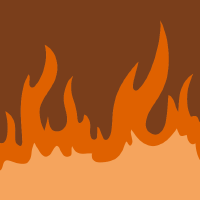Topic Menu
► Topic MenuTopic Editors


2. Sustainable Forest Management Research Institute, University of Valladolid-Spanish National Institute for Agriculture and Food Research and Technology (INIA), 34004 Palencia, Spain
The Future of Wildfires: Latest Geo-Technologies Applied to Fires and a New Perspective of Forest Resilience
Topic Information
Dear Colleagues,
The aim of this article collection is to contribute to the study of the future of wildfires, using update geo-technologies (including, but not limited to, Remote Sensing, LiDAR, UAVs, IA) and rethinking resilience to fire. This topic encourages interdisciplinary studies to provide ideas for developing ways in which we can improve the way we live with wildfires, from a multidisciplinary approach.
Wildfires have severe consequences for human health and wellbeing, biodiversity, and economies around the world. Understanding of forest fire regimes involves characterizing spatial distribution, recurrence, intensity, seasonality, size, severity and resilience (capacity of an ecosystem to recuperate to its pre-disturbance situation). Geo-technologies may be seen as a tool to study forest cycle management (risk, suppression, damage and regeneration analysis). While more importantly, the use of methodologies based on geo-technologies can be of great help in allowing researchers to redefine wildfire resilience.
This topic entitled “The Future of Wildfires: Latest Geo-Technologies Applied to Fires and a New Perspective of Forest Resilience” is focused on advances in geo-technologies such as new remote sensing technologies, new sensors, big data collections, and processing methodologies, applied to fire cycle analysis, fire resilience redefinition, and to guide management of fire-prone ecosystems affected by large fires. We welcome submissions from Forests, Remote Sensing, Fire and Geomatics journals that cover, but are not limited to:
- Innovative geo-technology for wildfire suppression, operational planning, or research methods;
- Rethinking wildfire resilience and adaptation to global change vulnerability (impact on forest fire severity and consequences for ecosystem recovery);
- Incorporation of wildfire processes within the earth-system, socio-economic and landscape fields;
- Monitoring fire risk/danger using new geospatial data and technologies;
- Fire effects on vegetation, soils, and hydrology using geo-technologies;
- Improved methods of modelling image time-series of fire disturbance recovery;
- Impact of fires and environmental consequences of large fires from remote sensing, big data, unmanned aerial vehicles (UAV), LiDAR, radar, and machine learning algorithms;
- Time series analysis for forest resilience study.
Dr. Alfonso Fernández-Manso
Dr. Carmen Quintano
Topic Editors
Keywords
- fire
- LiDAR
- machine learning algorithms
- remote sensing
- geomatics
- forest resilience
- fire risk
- geo-technologies
Participating Journals
| Journal Name | Impact Factor | CiteScore | Launched Year | First Decision (median) | APC |
|---|---|---|---|---|---|

Forests
|
2.4 | 4.4 | 2010 | 16.2 Days | CHF 2600 |

Geomatics
|
- | - | 2021 | 22.1 Days | CHF 1000 |

Remote Sensing
|
4.2 | 8.3 | 2009 | 23.9 Days | CHF 2700 |

Fire
|
3.0 | 3.1 | 2018 | 16.5 Days | CHF 2400 |

MDPI Topics is cooperating with Preprints.org and has built a direct connection between MDPI journals and Preprints.org. Authors are encouraged to enjoy the benefits by posting a preprint at Preprints.org prior to publication:
- Immediately share your ideas ahead of publication and establish your research priority;
- Protect your idea from being stolen with this time-stamped preprint article;
- Enhance the exposure and impact of your research;
- Receive feedback from your peers in advance;
- Have it indexed in Web of Science (Preprint Citation Index), Google Scholar, Crossref, SHARE, PrePubMed, Scilit and Europe PMC.

